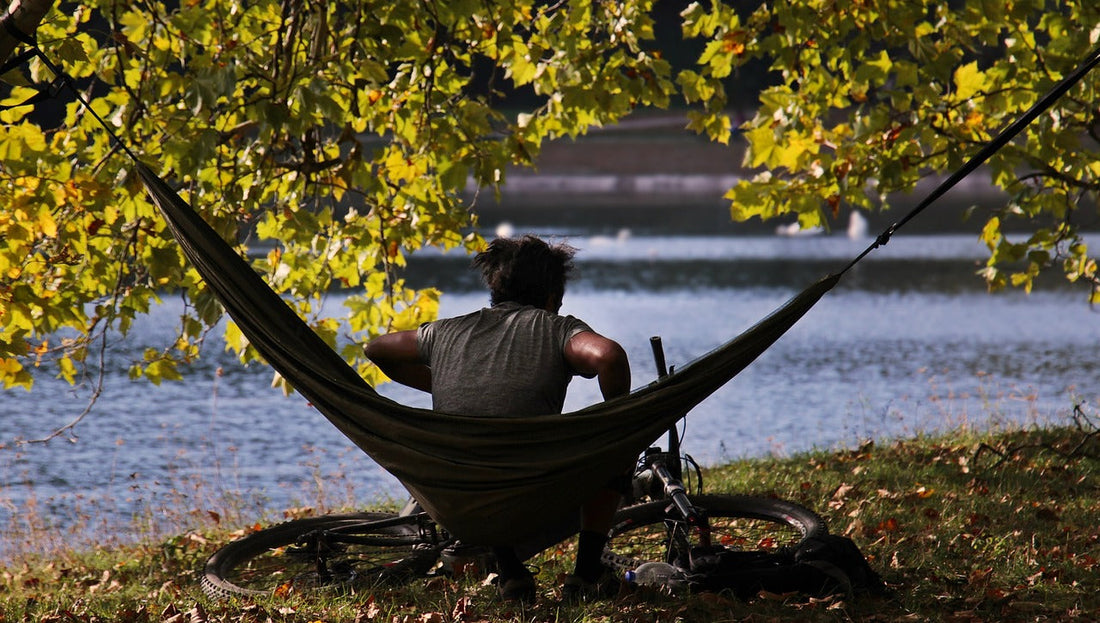
Back to Our Roots: Why Being Outside Feels So Good
Share
If you've ever felt like your mood lifts the second your boots hit a dirt trail, or like your soul exhales the moment you're surrounded by trees or mountains or ocean air—you’re not alone. There’s something incredibly grounding, healing, and human about being outside. And it turns out, there’s a reason for that.
Whether you're a seasoned hiker, a weekend camper, or someone who just loves their morning coffee on the porch, our craving for the outdoors is more than just a preference—it's hardwired into who we are.
We’re Built for the Wild
Modern life may revolve around screens, cities, and schedules, but that’s not how we started. For most of human history, we lived outdoors. We foraged, hunted, followed the stars, watched the weather, and knew the land. Nature wasn’t an escape—it was home.
Psychologists call this idea biophilia—our innate connection to other living things. Evolutionarily speaking, we’re drawn to green spaces and flowing water because those environments once meant food, shelter, and safety. Our brains are literally wired to feel good when we’re near trees, rivers, and open skies.
So when we feel pulled toward the woods or the sea or a quiet park, it’s not just wanderlust—it’s instinct. Our ancestors needed nature to survive, and in many ways, we still do.
Nature Is Our Mental Reset Button
You know that head-clearing magic that happens after a walk in the woods or a few hours under the sun? That’s not just in your head—well, it is, but it’s real.
Nature is one of the most effective tools we have for managing stress, anxiety, and mental fatigue. Studies show that time spent outdoors lowers cortisol (the stress hormone), reduces symptoms of depression, and improves focus and memory.
Psychologists explain this using something called Attention Restoration Theory. Basically, our brains spend all day processing constant information—emails, pings, tasks, traffic. That drains our directed attention. Nature, on the other hand, engages our brains in a soft, effortless way. Watching leaves sway, birds fly, or waves roll in gently pulls us in without overwhelming us. It gives our minds the space they need to rest and recharge.
Think of it like this: nature is the ultimate “control-alt-delete” for your brain.
The Outdoors Makes You Feel Alive—Literally
It’s no surprise that nature boosts our mental health—but it also gives our bodies a serious upgrade. Fresh air, sunlight, and movement are some of the simplest (and most overlooked) ways to improve physical well-being.
When you're outside, you're often moving—walking, hiking, paddling, climbing. That movement improves your heart health, lowers blood pressure, and strengthens your immune system. Plus, sunlight helps regulate your sleep-wake cycles and gives your body a healthy dose of vitamin D, which is linked to stronger bones and a better mood.
Even just being surrounded by natural sights and sounds can help. In one famous study, hospital patients recovered faster when they had a view of trees compared to a wall. Nature isn’t just a backdrop—it’s medicine.
Awe, Connection, and Something Bigger
If you’ve ever looked up at a sky full of stars or stood at the edge of a canyon and felt small in the best way, you’ve felt awe—and that’s one of nature’s most powerful psychological gifts.
Awe reminds us that we’re part of something bigger. It quiets our ego and reconnects us to the world beyond our to-do lists and worries. Time outdoors can spark perspective, humility, and a deep sense of gratitude.
Many outdoor lovers say it’s in nature where they feel most grounded, most themselves, and most connected—to the earth, to others, and to their own inner compass. Whether you call it spiritual, mindful, or just plain real, there’s a sense of meaning that grows stronger the longer you stay out under the sky.
A Break from the Noise
Modern life moves fast—and it’s loud. Notifications, emails, traffic, crowded schedules. The mental noise builds up, and our nervous systems feel it.
The outdoors is the antidote.
Nature doesn’t ask anything from you. It doesn’t care what you do for a living or what’s in your inbox. It simply exists—and welcomes you to exist too.
Even short escapes outdoors can make a difference. A quiet walk in the park, a solo paddle at sunrise, or an afternoon reading in a hammock can recalibrate your nervous system in ways that no app ever could. When you're outside, you're not escaping life—you’re returning to it.
Building a Nature-Rich Life (No Matter Where You Live)
You don’t need to live off-grid or climb Everest to reap the benefits of nature. Whether you're in the city, suburbs, or somewhere remote, there are ways to build more outdoor time into your life:
- Take a daily nature break: A walk in the park, lunch on the patio, or even a stroll around the block.
- Make your weekends count: Plan hikes, bike rides, beach days, or camping trips.
- Bring nature indoors: Houseplants, natural light, and nature sounds can help mimic outdoor calm.
- Unplug and go offline: Use outdoor time as your personal “no screen” zone.
- Try new outdoor hobbies: Gardening, birdwatching, stargazing, foraging—anything that gets you engaged with the world around you.
The key isn’t distance or difficulty—it’s consistency and intention. The more time you spend outside, the more your body and mind remember what it means to feel alive.
In the End, Nature Knows Best
At the heart of it all, our love for the outdoors isn’t a trend—it’s a return to what’s real. In nature, we remember how to slow down, how to breathe deeply, and how to just be. It’s where we shake off the stress, rediscover joy, and feel connected to something far bigger than ourselves.
So go ahead—answer that craving. Step outside. Follow the trail, chase the sunrise, pitch the tent. Your body, your mind, and your wild, human heart will thank you.
